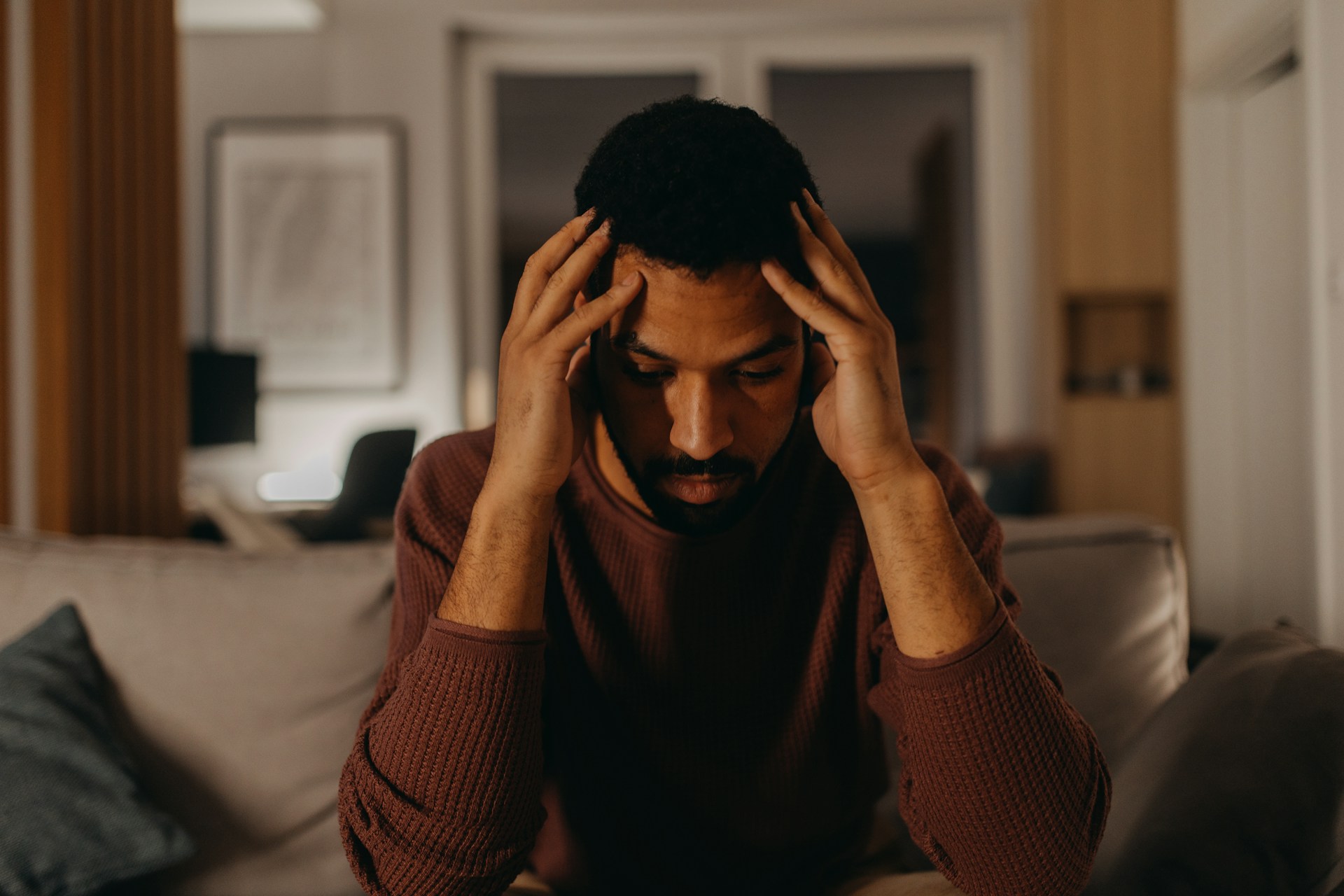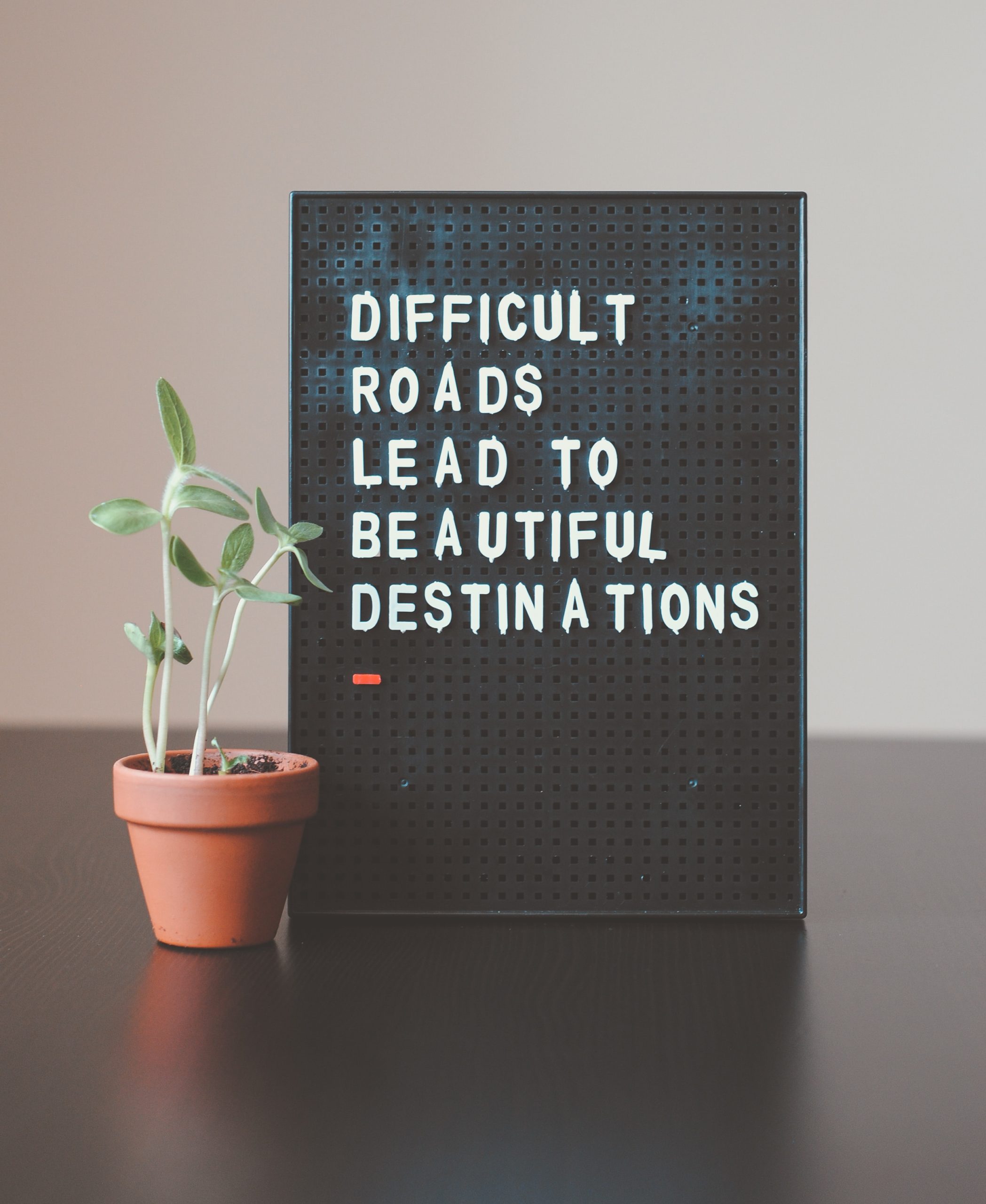Before talking about treatment for anxiety, it’s important to first understand what anxiety is. Anxiety is a loosely used term that describes a state of uneasiness, generally accompanied by nervousness, apprehension, worry, and fear.
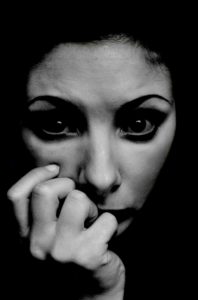 Symptoms of anxiety can range from mild to severe and can affect how we think, feel, and behave. Disorders involving anxiety affect over 40 million people in the US alone. Although it’s the number one mental illness in the land, well under 40% of those who have it get treatment.
Symptoms of anxiety can range from mild to severe and can affect how we think, feel, and behave. Disorders involving anxiety affect over 40 million people in the US alone. Although it’s the number one mental illness in the land, well under 40% of those who have it get treatment.
Anxiety is often debilitating. The physical effects of the worry, fear, and stress can be overwhelming and can include trouble sleeping, trouble staying awake, eating too much or too little, racing heart, and sweaty hands. A number of other symptoms may be present as well. Irvine Christian Counseling can provide support for those struggling with anxiety.
When a client with an anxiety issue disorder comes into the office the question often arises as to whether there are any non-prescription alternatives that can be tried as an option to pharmaceutical prescriptions. It is a good idea to explore non-prescription options and to learn skills to help my clients manage their anxiety without the use of medication.
As counseling begins to proceed, together we are able to identify triggers and work on coping skills and various other techniques that make it possible to work on the issue without prescription medicines which can actually be damaging, dangerous, or unnecessary.
The Problem with Prescriptions
Prescription meds can be miracles in a bottle. They can provide antibiotics in the midst of serious infections and even relieve dangerous depression and other mental illness symptoms. But, when there is an alternative option that works successfully, it is best not to use meds.
Here’s why:
- Prescription meds can cause side effects.
- Prescription meds can interact with each other.
- Prescription meds are not natural so they bring a certain element of chemicals into the body.
- Prescription meds can cause your system to build a tolerance and therefore, more is needed to render the same results.
How to Achieve Treatment for Anxiety Using No Medications
Anxiety is nothing new. It dates back centuries. That is why many alternative self-soothing and self-help practices have been so popular in past societies like in ancient China and India. We can learn a lot from those who have suffered before us, especially from those who found relief.
A couple of things clients have tried in the past to reduce their symptoms of anxiety without the use of medication include:
- Self-Care
- (CBT) Cognitive Behavioral Therapy
- Massage
- Talk Therapy
- Yoga
- Mindfulness
- Acupuncture
- Acupressure
- Art Therapy
Self-Care
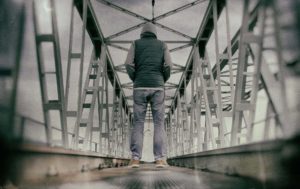 One of the first things that tend to fall by the wayside when someone is suffering from anxiety is their self-care. Why? Because the person is usually too tired and too depressed to care about self-care. Understandably so.
One of the first things that tend to fall by the wayside when someone is suffering from anxiety is their self-care. Why? Because the person is usually too tired and too depressed to care about self-care. Understandably so.
Even so, spiritual, physical and mental self-care is imperative if one wants to manage anxiety without the use of medicine. It isn’t easy and it is against our nature to do so, but committing to it is one step closer to the goal. Taking care of ourselves is where healing begins. A therapist is able to walk you through and encourage you along the way.
Mental self-care may include such things as breathing exercises or even journaling. Reading positive literature can help too. Remember, input-output means what you put into something is what you usually get out of it so putting positive things into your mind is very beneficial.
Physically taking care of yourself can involve any form of exercise like walking, running, riding a bike, and swimming. It can be taking part in an activity where you are physically moving like hiking, bowling, and canoeing. Physical self-care helps release pent-up tension and is good for your mind and spirit at the same time. Furthermore, being overweight and/or out of shape can be depressing and can bring on feelings of anxiety so it is a win-win to take care of your physical needs.
Spiritual self-care is one that is certainly often left out when one is suffering from anxiety. It includes spending time with God praying, worshiping at church, reading the Bible, reading Christian literature, and attending a church function or Bible study. God tells us in His Word not to be anxious, that He has us covered. Spending time with Him and learning more about Him drives home the reality that He really does have all our problems in His hands and is taking care of us in ways we don’t even begin to know.
The end goal is to put into practice techniques which will help you live more in the present and less in the future, worrying about what might happen, and less in the past, feeling guilty for failures. It helps bring about a sense of self-awareness so you can recognize and deal with how you are currently feeling and so that you can respond to present stimuli and stressors. In other words, it eliminates worry about the past and future so you can focus on the present which is usually all we are equipped to deal with anyway.
Cognitive Behavioral Therapeutic Technique
CBT has really gained popularity in recent years and the reason is clear – it is very effective. It is a tried and true way of treating anxiety that is non-invasive and medicine free. It always takes place with a counselor in a professional setting.
While anxiety over-exaggerates the possibility or likelihood that something is bound to happen, usually something negative, CBT balances the scale in an attempt to reframe the way we understand our behavior patterns and also in our thinking.
 With CBT it is fully possible to change negative patterns of thinking into more hopeful, positive, rational ones. This technique has been proven to improve the regulation of emotions on a grand scale.
With CBT it is fully possible to change negative patterns of thinking into more hopeful, positive, rational ones. This technique has been proven to improve the regulation of emotions on a grand scale.
Also falling under this heading is progressive relaxation for muscles. In this method of treatment, a therapist is able to teach techniques of relaxation breathing to a client to help lift symptoms associated with negative physiological like the tightening of muscles and other psychosomatic symptoms. Many physical side effects can be lessened through this technique like headaches and back tension issues.
Massage
Think about the last time you had a massage. Didn’t your troubles seem to melt away? There’s more to a massage than just feeling fabulous. It can offer a wonderful way to help physically reduce tension and anxiety. It will not, however, solve the problem that is underlying your anxiety.
It is a great method to release the tension that anxiety causes though that, in turn, brings about headaches, back problems, and so forth which complicate anxiety and heap even more anxiety upon us. It helps us feel up to dealing with the underlying problems, you might say.
Massage therapy can take many forms. Foot massage, face massage, cranial massage, Swedish massage, massage with lava rocks and many other types of massages are available. It can’t hurt and just might help!
Talk Therapy
Talking helps relieve anxiety. If just talking to a friend helps, how much more would it help to talk to a skilled counselor who is really able to help you work through the things that are welling up inside of you! When you talk to family and friends, you are often limited in what you feel free to say. But not so with a counselor who you can trust to keep your innermost secrets secret. Getting things out in the open is quite freeing. It helps you mentally, emotionally, and spiritually as well.
Yoga
Some therapists, these days, are now finding the value in the age-old therapeutic art of Yoga. They are skillfully incorporating it into their techniques used in their practices. As devoted Christian therapists, we refer clients to Yoga and highly recommend it but we are referring only to the relaxation principles and the mindfulness and relaxation, not the practices and beliefs of Buddhism or other pagan ways. There are many groups that do not place a large focus (or any focus at all) on the non-Christian aspects of Yoga.
Yoga is able to help modulate and lessen our stress responses and has become wildly popular in the past few decades for that very reason. It increases clarity of thought and promotes a positive mental outlook too. Through the use of breathing techniques and poses, it is able to change us physically, mentally and even spiritually.
Mindfulness
Mindfulness involves the practice of doing an activity (or, even nothing at all), in order to be present in the here and now. Some find that coloring mandalas or other intricate coloring pages are very therapeutic, while some do other activities such as jigsaw puzzles, or focusing on a piece of artwork for a time in order to keep their mind from jumping from one thing to the next. It is good for the mind and good for the soul to practice being present in the present, much like Yoga meditation encourages one to do.
Acupuncture
Acupuncture is a very ancient form of alternative medicine that is based on ancient medicine traditionally used by the Chinese throughout the ages. Sterile, long needles are skillfully inserted into areas of the body that are close to nerves which activates natural pain-killing chemicals in the body. When done properly, the procedure is not painful to most.
The points in which the needles are placed are called meridians. They are, in essence, energy channels which are said to control not only the pain but the yin and yang, the natural ebbing and flowing of energy within the body which makes the body work in harmony. Acupuncture can be centralized to give special attention to such things as relaxation, addiction, certain areas of pain, and so forth.
Acupuncture is often considered to be a pseudoscience that renders mixed results regarding its effectiveness at reducing symptoms, and its use is often met with anxiety. Regardless, there are many people who elect to try it out before conceding to take medication for anxiety and many of them have reported very positive and successful results.
Acupressure
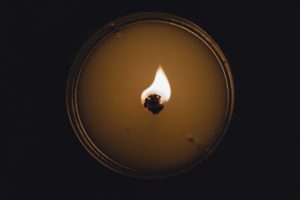 Acupressure is very similar to acupuncture in that it is an ancient Chinese practice that is aimed at relieving pain, eliminating or diminishing stress and anxiety, and opening channels of energy to flow in balance within the body.
Acupressure is very similar to acupuncture in that it is an ancient Chinese practice that is aimed at relieving pain, eliminating or diminishing stress and anxiety, and opening channels of energy to flow in balance within the body.
The difference is that no needles are used in acupressure. Pressure is used, instead. Pressure may come from lightly pinching or pressing upon an area or a tool or instrument may be used. The technique is ideal for those who do not wish to have needles inserted into them.
Acupressure, like acupuncture, is controversial. Some believe that there is no real therapeutic value in it while others have reported much relief from their symptoms.
Art Therapy
Art is commonly used in such settings as nursing homes, psychiatric wards, and other places where stress and anxiety are usually present. Art is a natural way of channeling energy into a creation, such as a painting or drawing. Hobbies, like needlepoint, crochet, and knitting are also considered art and can be used therapeutically to ward off anxiety, re channeling energy to something beautiful and constructive.
The use of art therapy is becoming more popular in dealing with anxiety disorders because it is being found that there are good measures resulting from such expressions. Taking a class in an art form or picking up an artistic, creative hobby may be beneficial for anyone who suffers from an anxiety disorder and wants to avoid taking medicine or at trying out optional treatments first.
Medication very well may still be warranted if the symptoms of your anxiety are extremely severe but using techniques associated with breathing, prayer, and other alternative options that are listed above can still be excellent choices in combination with medication.
Reaching out for the help a professional counselor can offer you is always your best option when it comes to finding a successful treatment plan that’s tailored specifically for you and your individual needs. Irvine Christian Counseling can assist in guiding you toward the right path to healing.
“Anxious”, Courtesy of LoganArt, Pixabay.com, CC0 License; “Loneliness”, Courtesy of jwvein, Pixabay.com, CC0 License; “Fall Photographers,” courtesy of Rula Sibai, unsplash.com, CC0 Public Domain License; “Candle burning,” courtesy of Alex Holyoake, unsplash.com, CC0 License
-
Kate Motaung: Curator
Kate Motaung is the Senior Writer, Editor, and Content Manager for a multi-state company. She is the author of several books including Letters to Grief, 101 Prayers for Comfort in Difficult Times, and A Place to Land: A Story of Longing and Belonging...
DISCLAIMER: THIS ARTICLE DOES NOT PROVIDE MEDICAL ADVICE
Articles are intended for informational purposes only and do not constitute medical advice; the Content is not intended to be a substitute for professional medical advice, diagnosis, or treatment. All opinions expressed by authors and quoted sources are their own and do not necessarily reflect the opinions of the editors, publishers or editorial boards of Irvine Christian Counseling. This website does not recommend or endorse any specific tests, physicians, products, procedures, opinions, or other information that may be mentioned on the Site. Reliance on any information provided by this website is solely at your own risk.


